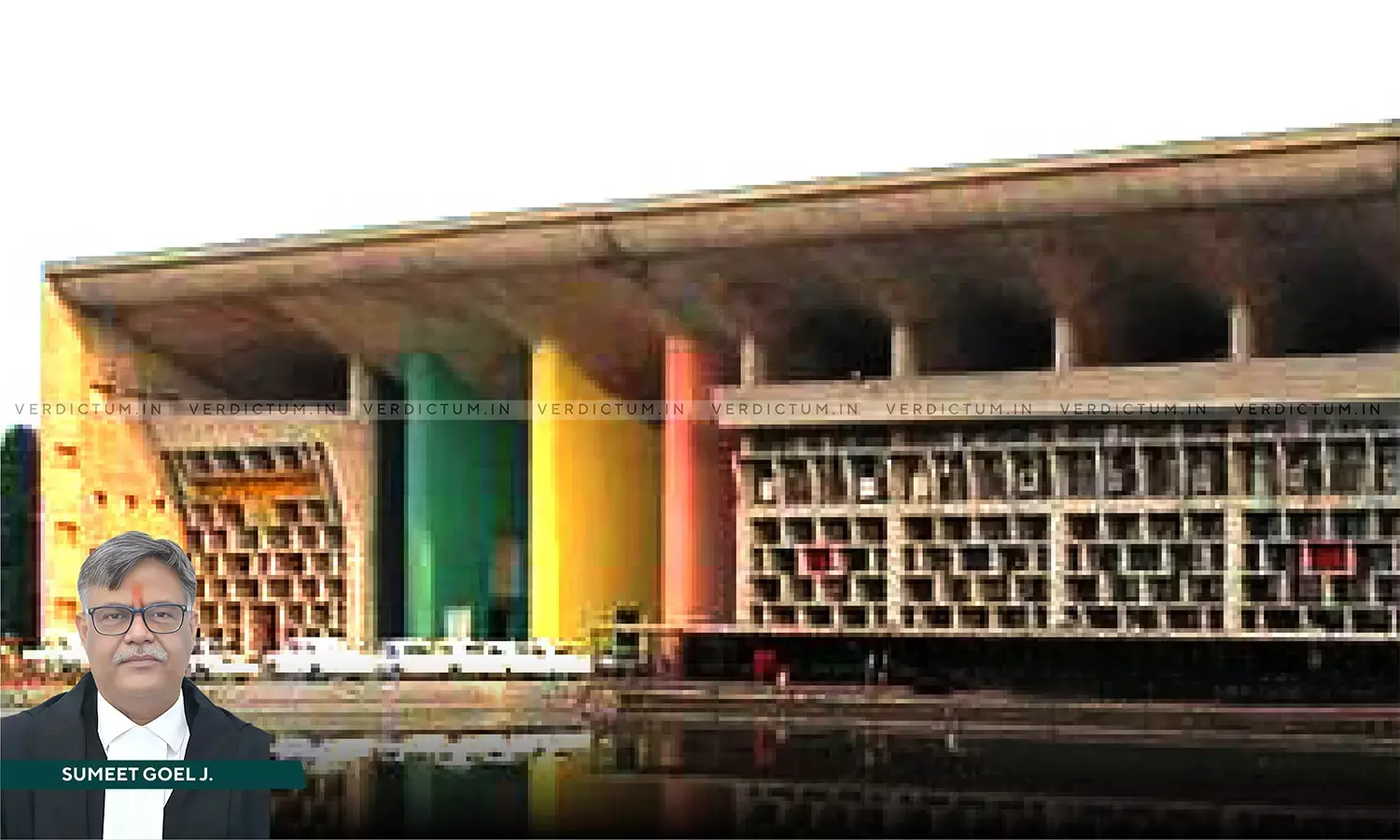FIR Cannot Be Quashed On Compromise When Offence Involves Assault On Public Servants On Duty: Punjab & Haryana High Court
The High Court held that where the FIR-complainant is a public servant and the act alleged was committed in the discharge of official duties, the offence cannot be treated as a private dispute capable of compromise-quashing.

Justice Sumeet Goel, Punjab and Haryana High Court
The Punjab and Haryana High Court has held that an FIR alleging obstruction of public servants and assault on government employees during duty cannot be quashed based on a private compromise.
The Court emphasised that offences against public servants in the discharge of official duties affect public order and cannot be treated as mere personal disputes.
The Court was hearing a petition under Section 528 of the Bharatiya Nagarik Suraksha Sanhita (BNSS), 2023, seeking quashing of an FIR and all consequential proceedings on the strength of a compromise deed between the accused and the complainants.
A Single-Judge Bench comprising Justice Sumeet Goel rejected the plea, observing that “where the FIR-complainant/victim/aggrieved person is a public servant, but the dispute essentially partakes the colour of an offence against a public servant, in discharge of his official duties, then such an FIR (as also the proceedings emanating therefrom) ought not to be quashed on the basis of compromise.”
Advocate Abhishek Goel represented the petitioners, Vishal Singh, AAG Haryana, appeared for the respondents.
Background
An FIR was registered at Police Station Beri, Jhajjar, Haryana. As per the allegations, three electricity department employees, two Assistant Linemen and a Lineman, were on night duty at a government complaint centre located in a Dharamshala. When they returned to the centre around 11:40 PM, several individuals allegedly stopped them from entering, claiming the Dharamshala had been privately booked.
A dispute ensued, during which the accused allegedly abused, assaulted, and threatened the public employees, threw away a government phone when the workers attempted to contact their Junior Engineer, and caused injuries. Based on the investigation, offences punishable under Sections 121(1), 132, 221 and 324(6) of the BNSS were invoked, and the petitioners were arrested.
During the pendency of proceedings, the parties executed a compromise deed dated 07.08.2025 wherein the complainants stated they had mistakenly identified the accused and did not wish to pursue the case. On this basis, the petitioners sought the quashing of the FIR and all subsequent proceedings.
While the complainants supported quashing, the State opposed the petition, arguing that the incident was not a private dispute but an attack on public functionaries on duty.
Court’s Observation
The Punjab and Haryana High Court undertook a detailed analysis of the scope of inherent powers to quash criminal proceedings under Section 528 BNSS (corresponding to Section 482 CrPC), noting that the inherent jurisdiction exists to secure the ends of justice and prevent abuse of judicial process.
However, the Court cautioned that the power cannot be invoked where the nature of the allegations reflects serious public interest or offences committed against society.
The Bench relied extensively on Supreme Court precedents, including Gian Singh, Narinder Singh, Parbatbhai Aahir, and Laxmi Narayan, reiterating that offences involving public servants performing official duties cannot be quashed merely because the parties settle privately.
The Court explained that offences against private individuals differ fundamentally from those committed against public functionaries, including a public servant, while on duty, who represents the State, stating that a compromise cannot override broader societal interest
Importantly, the Bench also noted that the complainant-employees had entered into a compromise without seeking mandatory administrative approval. It held that a public servant cannot settle a criminal case about discharge of official duty without permission of the concerned government authority, and such conduct attracts punitive consequences:
“If such a public servant seeks and takes steps to settle such a dispute without the permission of the concerned competent administrative authority, then such a public servant ought to be saddled with punitive measure(s)”, the Bench remarked.
After examining the factual matrix, the Court concluded that the FIR did not concern a private altercation, but an assault on government employees during the course of duty, attracting public interest. Therefore, compromise could not justify quashing.
Conclusion
The Court dismissed the petition seeking the quashing of the FIR and subsequent proceedings.
The Court further directed the Administrative Secretary of the concerned department to initiate appropriate action against the public employees who attempted to compromise the case without administrative approval and to file a compliance affidavit within three months.
Cause Title: Inderjeet Suhag and Another v. State of Haryana and Others (Neutral Citation: 2025:PHHC:140414)
Appearances
Petitioners: Abhishek Goel, Advocate
Respondents: Vishal Singh, AAG Haryana, Abhimanu Jangra, Advocate


